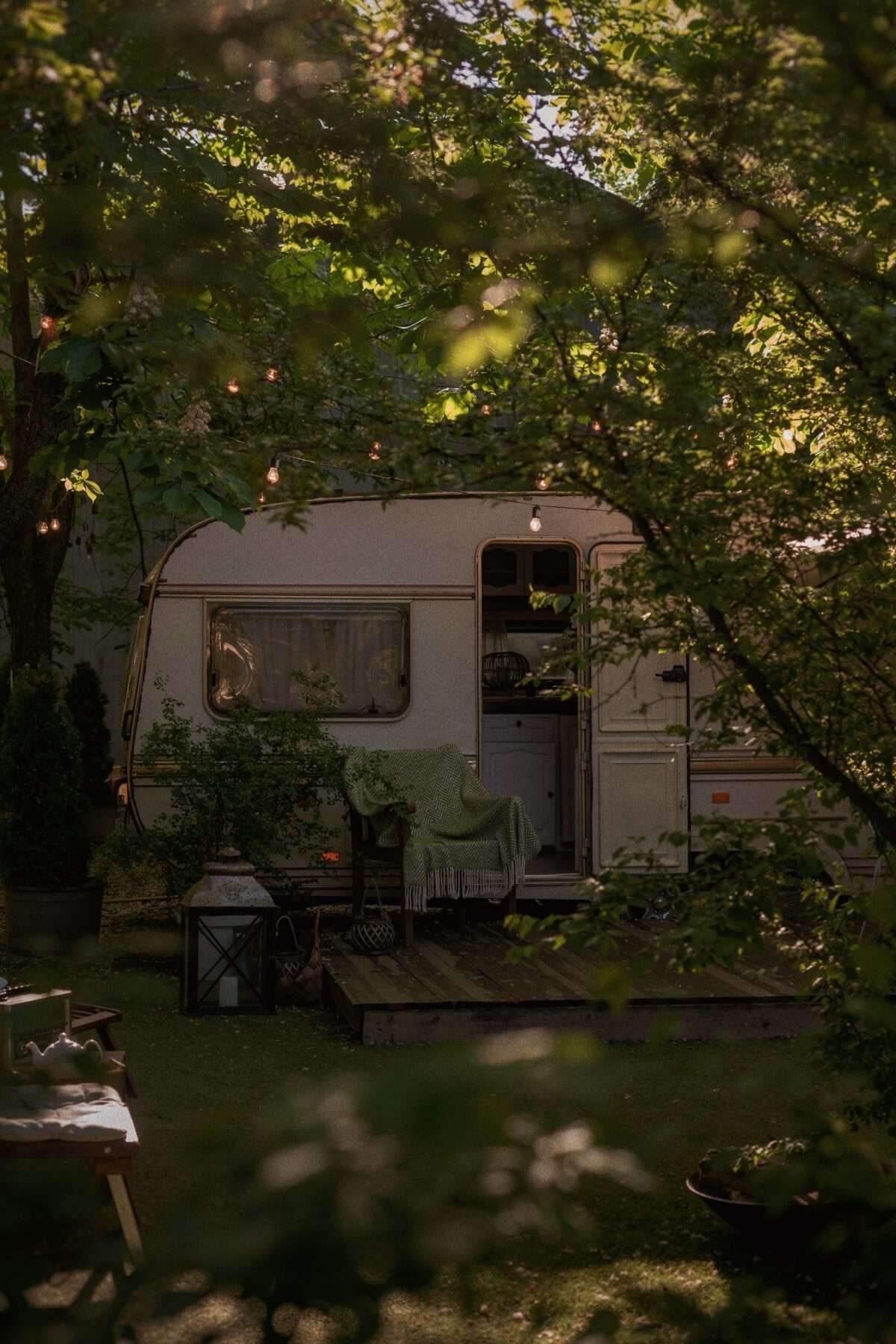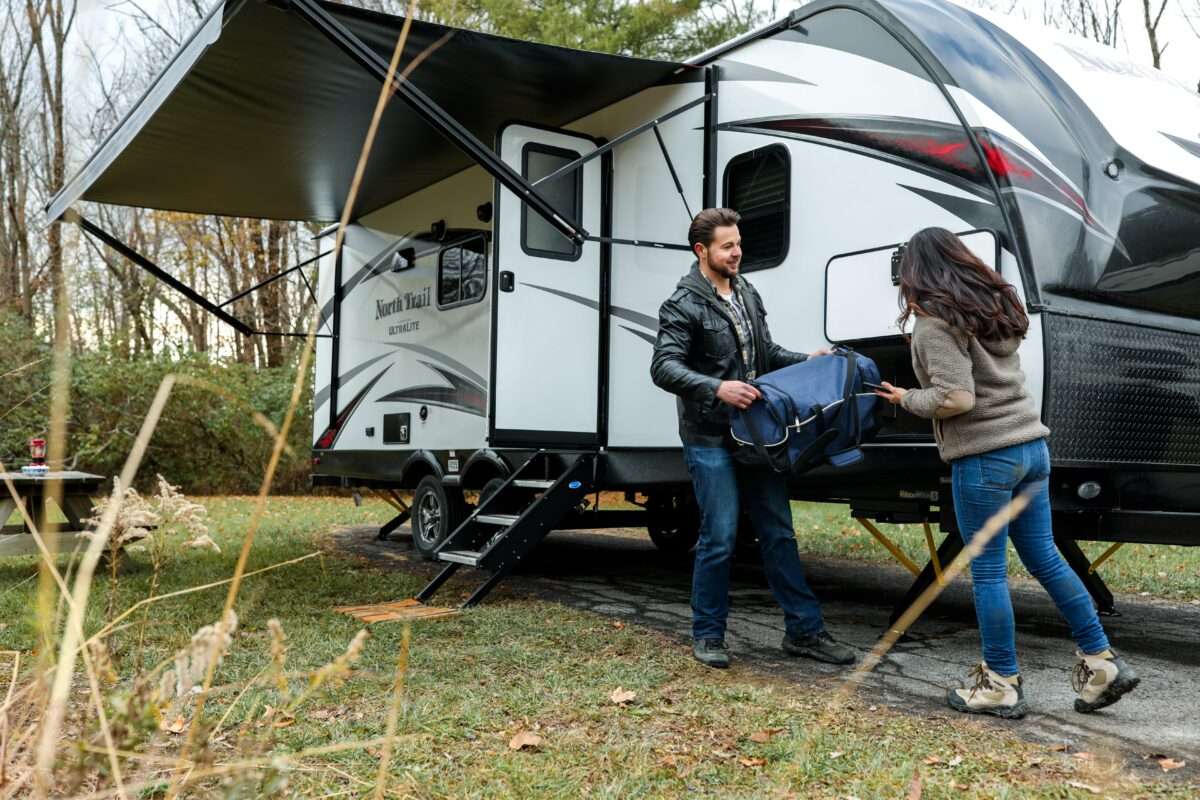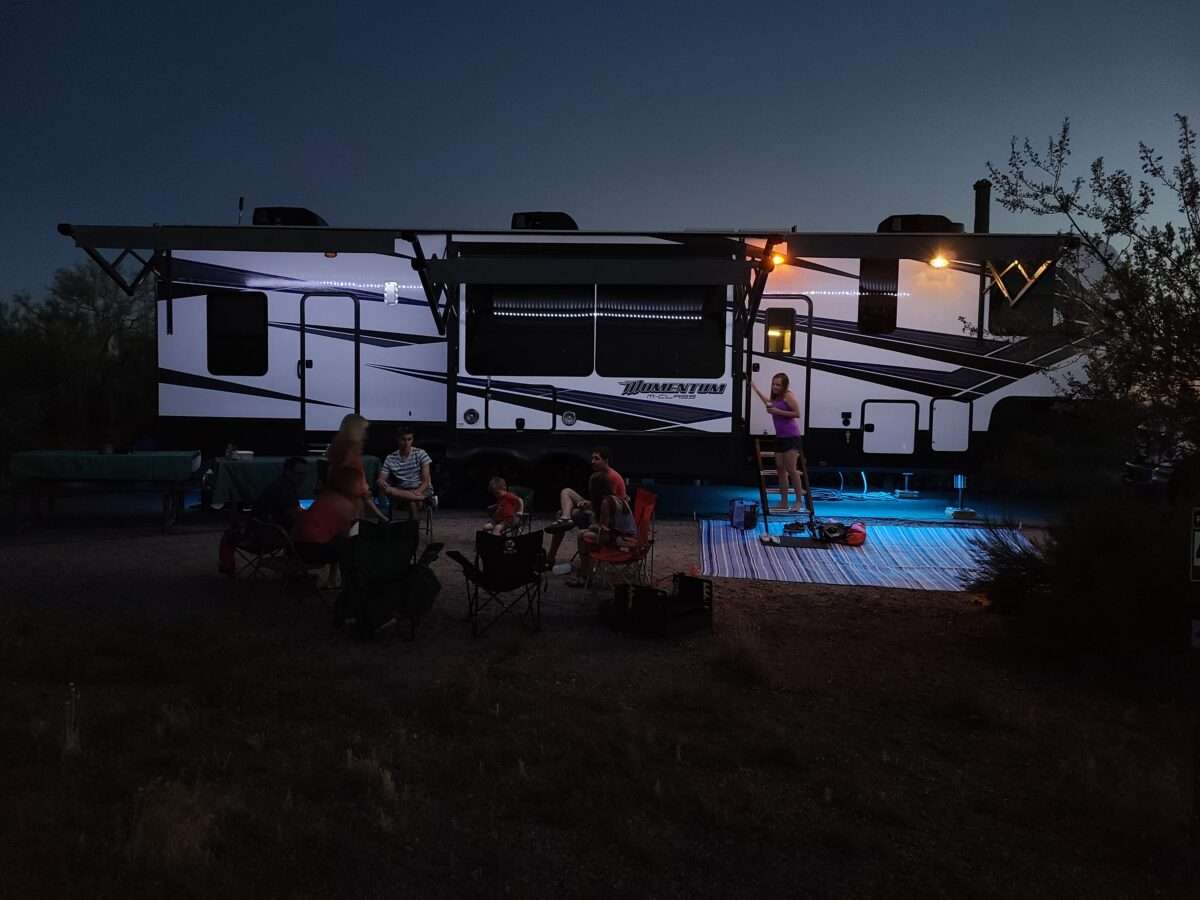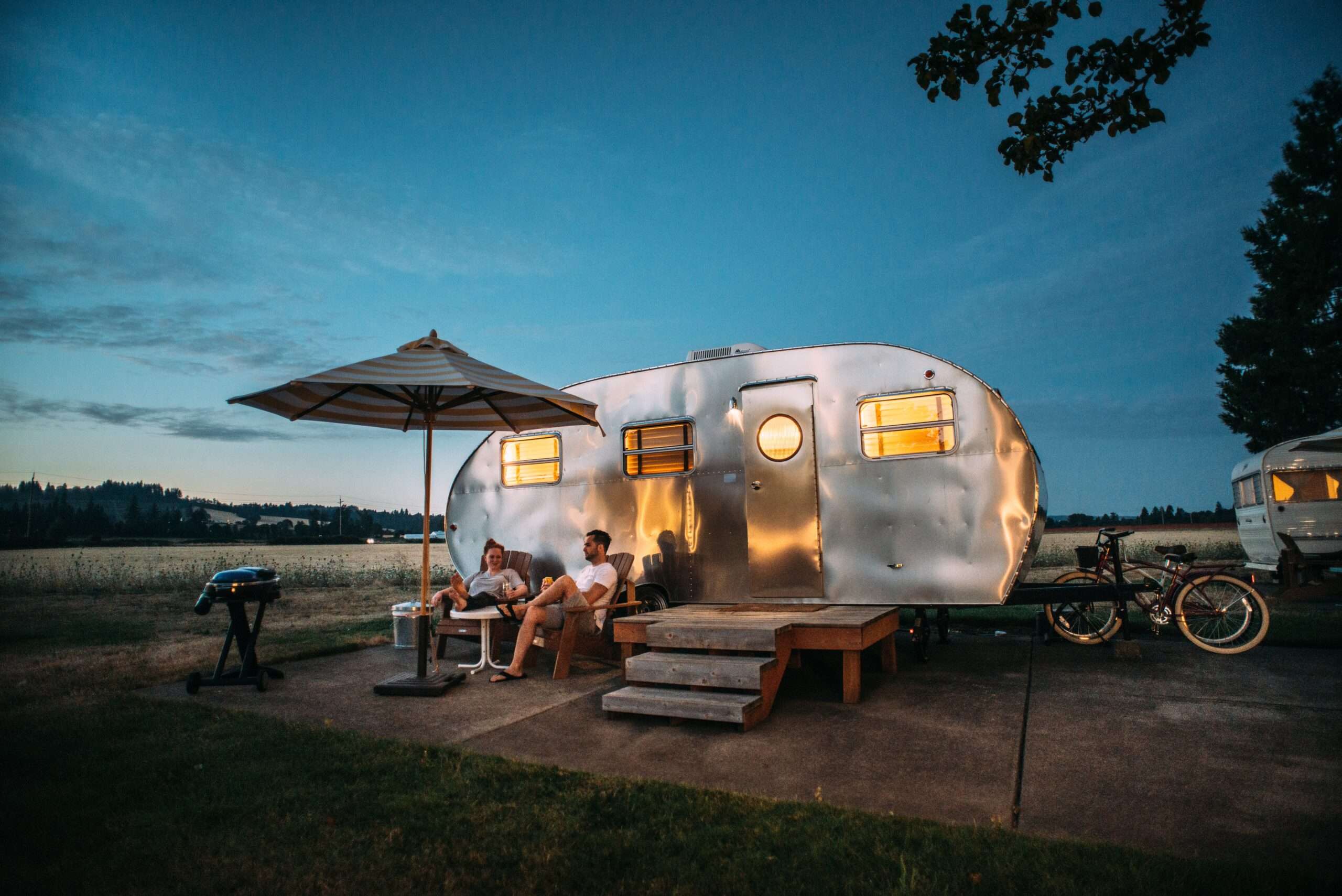Camping is a time-honored tradition for many outdoor enthusiasts, a chance to reconnect with nature and break away from the daily grind. One question, however, often puzzles both seasoned campers and novices alike: Can you tent camp in an RV site? This article aims to delve into that query, unraveling its complexities and shedding light on the considerations when pondering this camping conundrum.
Understanding the Basics: RV Sites Vs. Tent Sites
First and foremost, let’s understand what distinguishes an RV site from a traditional tent site.
RV sites are designated areas equipped with specific amenities catering to Recreational Vehicles (RV). These amenities span electric, water, and sometimes sewer hookups that go a long way in ensuring a smooth, comfortable RV camping experience. In addition to these conveniences, these sites often feature a picnic table, a fire ring, vehicular access, and plentiful space for parking the RV.
Conversely, tent sites are typically simplistic and basic, designed to accommodate a more “natural” camping experience. Can You Tent Camp in an RV Site? You may find a flat patch of land, perhaps with a fire ring and picnic table, but without the utilities available at an RV site.

The Intersection of Tent Camping and RV Sites
Tent camping in an RV site tends to be a gray area in the camping world. Yes, in most instances, campgrounds permit tent camping in an RV site, but it’s not a black-and-white situation.
In terms of space and efficiency, the situation gets a bit convoluted. RV sites bear their large dimensions to accommodate the hefty size of most RVs. When a tent camper uses such an expansive space, questions about the economical or efficient use of the space daunt many campgrounds, leading them to resist such arrangements.
Unpacking Key Considerations for Tent Camping in RV Sites
Should you decide to probe into the prospect of tent camping on an RV site, several critical factors warrant your attention:
- Amenities and Utilities: RV sites, by design, feature specific amenities tailored to RV camping needs. As a tent camper, you’re unlikely to tap into these utilities, leaving them unused and wasted.
- Cost Implications: Because of the additional conveniences, RV sites traditionally impose heftier fees than tent sites. Consequently, you might find yourself paying for resources you don’t use.
- Availability and Campsite Policies: Some campgrounds, when faced with a packed house in their tent areas, might permit tent camping in RV slots. Regardless, securing a reservation beforehand is judicious. It’s also vital to remember that each campground upholds distinct rules and regulations, some of which might restrict tent camping within RV sites. Always dial the campground before your visit to verify their policies.
- Environmental Impact: Campsites design their grounds with specific forms of camping in mind. Setting up a tent on an RV site might disrupt the layout and optimal use of space, potentially causing environmental and infrastructural problems.

The Fine Balance: Respecting Campground Regulations and Fellow Campers
While tent camping in an RV site can be viable, it’s crucial to remember that we share these natural retreats with many others, each seeking to plunge into their version of a camping escapade. As such, it’s incumbent upon us to respect campground regulations and consider the camping experience of those around us.
Before you proceed with your plan, make sure you’re not infringing on anyone else’s experience or breaking any campsite rules. You’re there for an enriching encounter with nature and to create wonderful memories – the same reasons everyone else is there for.
The Types of Campgrounds: Privately-owned vs. Public
Understanding the types of campgrounds available can provide clarity on policies regarding tent camping in RV sites. Campgrounds generally fall into two classifications: privately-owned or public campgrounds, also known as national or state parks.
Privately-owned campgrounds are often designed with a business-focused perspective, offering a broad spectrum of services and facilities, including WiFi access, convenience stores, playgrounds, and sometimes even swimming pools and restaurants. Given the commercial nature, these campgrounds may have more flexible policies regarding tent camping in RV sites.
Public campgrounds, on the other hand, are predominantly NPS (National Park Service) or state-managed parks. They may or may not offer the amenities found in private campgrounds, such as electrical hookups or dump stations. Often, they prioritize preservation over profitability, so they are more liable to have stricter rules on where one can and cannot set up camp. As such, tent camping in RV sites may not always be acceptable here.

Safety Factors to Contemplate
Tent campers opting to utilise RV sites should also consider safety factors. RV sites are designed and equipped for vehicles that offer protection from potential risks. A tent camper might be more exposed to certain dangers.
For example, consider the situation at night. RV campgrounds are often well-lit, catering to RV lifestyle where extra light is less intrusive. For tent campers, however, this might disturb their “back-to-nature” experience. Moreover, considering that RV sites have different electrical requirements, there may not be enough safe space to distance a tent away from an electric box.
The campground’s design, too, can compound safety concerns. The sites may be paved or compacted to handle the weight of RVs, making it difficult or uncomfortable to stake a tent. Needless to say, setting up your tent on concrete isn’t ideal.
A Mutual Understanding: The Role of Park Rangers
While it’s crucial to respect the regulations and fellow campers when tent camping in an RV site, remember that there are individuals whose job is to ensure that everyone has an enjoyable experience: the park rangers. If in doubt, don’t hesitate to speak with them to understand the implications of tent camping at an RV site. Their job is to protect, educate, and assist, so use them as a valuable resource during your camping adventure.
In the grand scheme of things, whether you can tent camp in an RV site is an intricate query, wrapped in many layers of campground regulations, cost considerations, and respect for fellow campers. Indeed, with meticulous planning, a respectful approach, and a thirst for adventure, you can embrace the camping experience in all its glory, irrespective of your choice of a tent or an RV. So, gear up, tread thoughtfully, and soak in the wonders of what camping has to offer. Your memorable adventure awaits!
